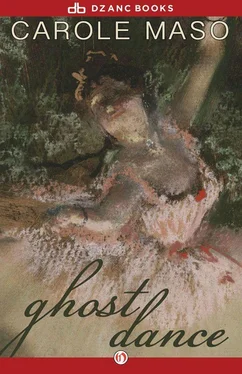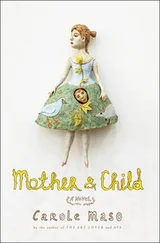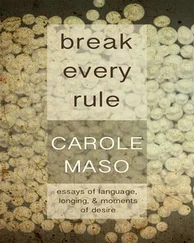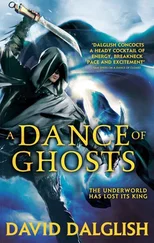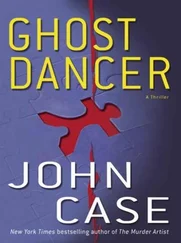From that ash, the world rose up again and called us back, shaped us, and we could not ignore its round call; we were back in my room and we knew that she was far, far away. Betrayed, I gave out a long, loud wordless cry into the empty space and the tears began. “Sabine,” I cried. Her name came back again. I hated it.
“Oh, Sabine,” I said. She shook her head sadly, put a finger — for the world insisted on fingers and we could do nothing about it — she put a finger to my sticky, swollen mouth and outlined it.
We dragged our grieving bodies over every inch of my apartment, lost ourselves, saw ourselves differently, changed the ending of the story for a while, but we always returned. Only our lovemaking could relieve the pain and longing that each of us had created in the other. The warm liquid our bodies gave up changed the atmosphere. It was smelly and dreamy and we floated in the world our sorrow made. We explored long into the day every curve, every contour of it.
“Speak only in French,” I told her.
“Say nothing but with your eyes,” she said.
“Sing me a song.”
“Now you sing me one.”
“Turn over on your back.”
“Put your hair up in a bun.”
“Put on your mother’s bracelet.”
“Let me kiss your ankles.”
“Let me drench you in cologne.”
“Make it all stop.”
“Make everything disappear.”
Day turned into night and night gave way to dawn and dawn to day until we were finally able to sleep in the light, entwined. When I woke up it was dark out. She was sitting up in bed smoking. She turned her head toward me.
“How could I help but love you?” she whispered, smoothing down my wild hair with her hand. I smiled. She reached over me and turned on the light. I put my face in the pillow. I felt some peace.
“I fed China,” she whispered. “We are old friends. Are you hungry?” she asked.
“No, not really. What time is it?”
She shrugged. “I have to leave in the morning.”
“Have you been up long?”
“No,” she said.
We spoke very quietly and barely moved so as not to disturb the calm. We thought that if we did not draw attention to ourselves, if we did not alert sorrow, it might not seek us out.
“Why didn’t you come to the funeral?” I asked very, very quietly.
“The press,” she said, “I couldn’t bear to face them.”
I nodded.
“It was very hard. Fletcher punched one reporter. I never saw Fletcher punch anyone before.” We lay in silence for a long time. Even though we were quiet and did not move, it was coming to get us. I thought of the press, how they described us all, all the things Fletcher said.
“No, that’s not really it,” she said finally. “The real reason I did not come was Michael. Your father loved her as much as I did. It would not have been fair to him. It would have hurt too much.” She looked away. “Fletcher is in New York, too, yes?”
“No, Sabine. He’s still in the Black Hills on the reservation. I never hear from him anymore. Sometimes I think I’ve lost him for good. All my letters have been returned.”
Sometimes I imagine my brother’s massive, muscled arm pointing those letters back to me, refusing this world.
“C’est bizarre. Je ne sais—”
“I miss him, Sabine.”
“Oui,” she said, “bien sûr.”
She was slipping into French. She looked tired but calm. She sat straight up in the bed now, leaned over me, and looked into my eyes. She had come to tell me this, whatever it was she was about to say.
“Vanessa,” she said. “Do you know, Vanessa…”
I could see it in her posture. I could hear it in the changed cadence of her speech, in the pauses around her words, the way her voice faltered suddenly. There was quiet, and out of the quiet she finally said, “Your mother loved you so much.” The words hung in the night like stars where I could see them shining. “She loved you so much. I wonder if you have any idea at all. She wanted you more than anything in the world.” She paused. “Did she ever tell you about that afternoon at the psychiatrist’s?”
I shook my head. Sabine could not know. My mother had died. She had told me nothing. She was always so mysterious, a retreating, exhausted figure, deceptively close, but when I tried to talk to her or reach out my hand I could never touch her.
“Christine had just learned she was pregnant with you a few days before. We were in New York together for the weekend and she had an appointment with the psychiatrist. She never talked about what went on there, but she seemed very nervous about going this time and she asked if I would come with her. So, of course, I did.” Sabine lit a cigarette. “It was an office on Madison Avenue.”
“I know where it is,” I said.
“A beautiful view, modern, very chic, the way only New York can be.”
I thought of my mother walking into that office with its thick carpets and glass tables and how the objects in the room must have seemed to float before her eyes and how frightened she must have been.
“The psychiatrist came out and told Christine to come in. He was very tall and he bowed his balding head as he spoke. He spoke in a very quiet, reassuring voice. I had never seen your mother so panicked. It was not like her to show it, but she could not control herself this day. ‘I will not come in without Sabine,’ she said. ‘Very well then,’ he smiled in his kind, patient way and we both went in. His office was very large and elegant, very beige, magnificent.”
I saw my mother, as Sabine spoke, sinking into the beige carpet as if it were quicksand. I, too, minute inside my mother, must have sunk with her as he closed the door.
“‘I’ve just received the results from your pregnancy test,’ he said gently. ‘I think that it is important for us to talk about it right away’ Your mother was shaking.
“And then he said, T have told you many times that a child is not a good idea for you at this time. I am being prudent and conservative in my judgment, I believe. You are in precarious mental health and cannot go off your medication now. I must recommend that you do not have this baby. I can arrange everything for you. It will be quite painless and it will be safe. I am only telling you what I truly believe is best.’
“Your mother stood up. She was not shaking anymore.
“‘Prudent,’ she said, evenly. ‘Conservative. Not have this baby’” And I knew how her mouth shaped to hold that word, baby .
“I will have children. I will write poetry. There is nothing you can do about it.’”
My mother grows large and rises above the carpet. The floating objects of the room spin into her hands and she smashes them against the great, wide Upper East Side windows, and speaks now from the clarity at the center of her anger. “I will have children. I will write poetry. There is nothing you can do about it.”
“She was radiant,” Sabine said. She rubbed her belly through her dress and moved about the room furiously like an animal protecting her unborn, snarling at the man in her dazzling anger, in her crystalline, in her jewel-like anger. I will have children, she stated, lucid in the perfection of her anger.
“And she threw the objects of art at the psychiatrist,” Sabine said, “and hissed at him until he was silent.
“She could be very cruel, you know,” she said.
“Yes, I know.”
“But she could never really be cruel to us.” Sabine smiled slightly. “She was still raging out on the street, so much so that I was afraid she might lose you, right then, and I said to her, I remember it perfectly, I said to her, ‘If you don’t calm down that beautiful baby of yours is going to be born angry and fighting.’ Your mother looked at me. Her eyes were purple and wild and she said to me in perfect control, ‘If she’s lucky — oh, Sabine, she’d be very lucky to be born fighting.’
Читать дальше
